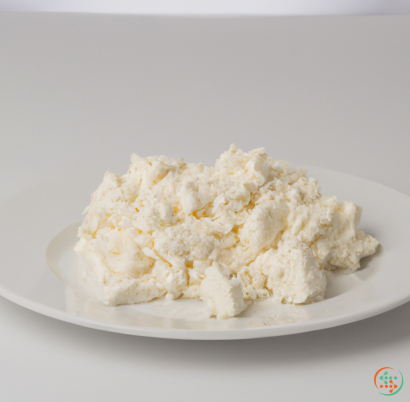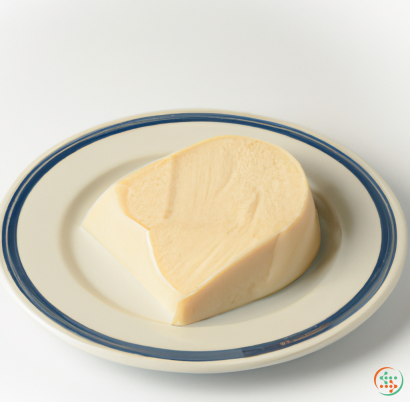Blue Cheese: Complete Mineral Profile
Blue Cheese: Considered a good source of minerals?
Blue cheese is an excellent source of minerals, because it is high in both calcium and phosphorus. Calcium is necessary for the maintenance of healthy bones and teeth and helps regulate muscle contractions. Phosphorus also plays a role in maintaining strong bones and teeth, as well as energy metabolism, cell growth, and repair. Both calcium and phosphorus are essential for proper nerve function. Additionally, blue cheese contains other important minerals such as zinc, magnesium, copper, iron, potassium, selenium, manganese and folate. Zinc is involved with protein synthesis, red blood cell formation, wound healing and immune system health, while magnesium aids with normal digestion, enzyme production, cellular energy production and more. Copper assists in creating connective tissue and hemoglobin, while iron aids in red blood cell formation, oxygen transport, DNA synthesis, and certain brain functions, including mental alertness. Selenium acts as an antioxidant to help scavenge free radicals that damage cells, while potassium keeps our complexes systems balanced. Finally, manganese helps with collagen production and metabolic reactions, while folate or folic acid helps with producing and maintaining new cells. All these trace minerals help keep us healthy and functioning properly.
Blue Cheese ‐ Mineral Information
Introduction
Blue cheese is perhaps one the most popular ingredients in the world. It has a pungent, salty flavor and an unmistakable creamy texture that make it useful for many recipes and dishes. The distinct taste of blue cheese also comes from numerous minerals found within it. Besides adding rich flavor to foods, these minerals also have great nutritional value with benefits ranging from strengthening bones to improving immune system performance. In this long-form research paper, we will explore the various minerals obtained from eating blue cheese as well as their associated benefits and consequences when consumed in excess.
What Minerals Are Found in Blue Cheese?
The unique flavor given off by blue cheese can be attributed to its key ingredient, mold. Penicillium, which produces the characteristic mild aroma of blue cheese, uses calcium ions derived from milk proteins to produce spores and form what’s commonly referred to as “the blueing”. These moldy bacteria also contain proteins, enzymes and lipids along with other vitamins and minerals such as potassium, magnesium, zinc, phosphorus, and selenium. The primary mineral content, however, includes calcium (Ca), sodium (Na) and chloride (Cl).
Calcium
One of the most abundant minerals in blue cheese is calcium. This macroelement provides essential biochemical functions including blood clotting and muscle contraction while also playing important roles in cell signaling pathways. Eating blue cheese regularly boosts the levels of body's serum calcium and strengthens bone density, protecting against developing osteoporosis. Weakened bones often occur due to changes in hormonal balance during menopause and aging, so consuming blue cheese helps delay this process. Furthermore, adequate consumption of calcium minimizes risk of kidney problems and even cancer development, making blue cheese an important part of any nutrition plan. However, all these health benefits rely upon blue cheese being eaten in moderation as too much calcium can lead to calcification which results in higher risk of stroke or heart attack.
Sodium
Apart from calcium, another major macronutrient found abundantly in blue cheese is sodium (a salt). Even though natural sources of sodium exist, most sodium ingested is processed through additives added to food products. A diet rich in sodium causes fluid to be retained, thus raising blood pressure and putting individuals at greater risk of diseases like hypertension. Medical experts suggest adults consume no more than 2.3 grams of sodium per day for optimal health. Unfortunately, 100g of blue cheese contains about 0.95 grams of sodium and therefore care should be taken to not exceed the recommended amount. Overconsumption of sodium from blue cheese can increase susceptibility to conditions like edema, skin discoloration and migraines, leading to general discomfort.
Chloride
Aside from calcium and sodium, blue cheese contains a small proportional amount of chloride, an electrolyte necessary for proper digestion and reabsorption of nutrients throughout our bodies. Chloride intake from blue cheese aids in keeping pH levels balanced, ensuring normal functioning within cells. Adequate amounts of chloride is needed to help the body absorb and replace necessary anions and cationslost through sweat or urine. As with many beneficial minerals, excess quantity of chloride will decrease its positive effects on health and cause uncomfortable symptoms such as high blood pressure, vomiting, and diarrhea.
Conclusion
In conclusion, blue cheese supplies several important minerals to enhance overall well-being including calcium, sodium, and chloride. Not only do these minerals contribute to forming the delectable flavor enjoyed by many, they also offer dietary benefits rangingfrom increased immunity to strengthened bone structure. Nevertheless, because of their overabundance in modern diets, cautionis advised when consuming blue cheese – specifically in regards tocalcium, sodium, and chloride. When eaten in moderation, blue cheese offers tremendous nutritional benefits for human health.
| Calcium | 0.528 grams |
Daily Value 1.3 g
|
| Iron | 0.31 mg |
Daily Value 0.018 g
|
| Magnesium | 0.023 grams |
Daily Value 0.4 g
|
| Phosphorus | 0.387 grams |
Daily Value 1.25 g
|
| Potassium | 0.256 grams |
Daily Value 4.7 g
|
| Sodium | 1.146 grams |
Daily Value 2.3 g
|
| Zinc | 0.00266 grams |
Daily Value 0.011 g
|
| Copper | 0.04 mg |
Daily Value 0.9 mg
|
| Manganese | 0.01 mg |
Daily Value 0.0023 g
|
| Selenium | 0.0145 mg |
Daily Value 0.055 mg
|







